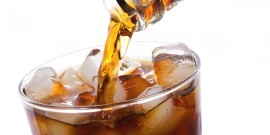
Enamel erosion can cause tooth sensitivity, and there is nothing a dentist can do to “fix” sensitive teeth. Soda in any form is detrimental to your oral health, so it is vital that you think before you drink. Drinking lots of water can help to restore the proper balance after you do consume a sugary or acidic beverage. The best choice, however, is to avoid such drinks as much as possible. Thanks for visiting us at Surrey Endodontic Centre.
You may be saving calories by drinking diet soda, but when it comes to enamel erosion of your teeth, it’s no better than regular soda.
In the last 25 years, Kim McFarland, D.D.S., associate professor in the University of Nebraska Medical Center College of Dentistry in Lincoln, has seen an increase in the number of dental patients with erosion of the tooth enamel – the protective layer of the tooth. Once erosion occurs, it can’t be reversed and affects people their whole life.
“I’d see erosion once in a while 25 years ago but I see much more prevalence nowadays,” Dr. McFarland said. “A lot of young people drink massive quantities of soda. It’s no surprise we’re seeing more sensitivity.”
Triggers like hot and cold drinks – and even cold air – reach the tooth’s nerve and cause pain. Depending on the frequency and amount of soda consumed, the erosion process can be extreme.
She said according to the National Soft Drink Association, it’s estimated the average American drinks 44 gallons of soda pop a year. Phosphoric and citric acid, which are common ingredients in many popular sodas and diet sodas, alters the pH balance in the mouth and can cause tooth erosion over time.
“It can be more harmful than cavities because the damage causes tooth sensitivity,” Dr. McFarland said. “If a tooth is decayed a dentist can fix it by placing a filling, but if a tooth is sensitive there is really nothing a dentist can do.
“Tooth sensitivity can become a lifetime problem, limiting things we like to drink and even food choices. You could crown all your teeth but that is costly and a rather extreme solution,” Dr. McFarland said.
“It hurts to consume cold and hot foods and beverages. Some of my patients tell me when they go outside in the winter they don’t open their mouth or the cold air causes pain.”
In addition, a significant number of scientific studies show a relationship between the consumption of soda and enamel erosion and cavities.
Continue reading HERE.


